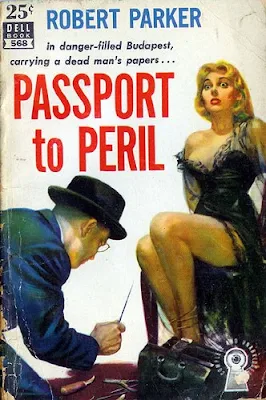 Pernell Elvin Roberts died he was 81. Roberts was an American television actor and singer. He was best known for his roles as Ben Cartwright's eldest son, Adam Cartwright, on the western series Bonanza (a role he played from 1959 to 1965), and as chief surgeon, Dr. John MacIntyre, the title character on Trapper John, M.D. (1979-1986).
Pernell Elvin Roberts died he was 81. Roberts was an American television actor and singer. He was best known for his roles as Ben Cartwright's eldest son, Adam Cartwright, on the western series Bonanza (a role he played from 1959 to 1965), and as chief surgeon, Dr. John MacIntyre, the title character on Trapper John, M.D. (1979-1986). He was known for his activism, which included participation in the Selma to Montgomery marches in 1965, and pressuring NBC to refrain from hiring whites to portray minority characters.
| (May 18, 1928 – January 24, 2010) |
In 1958, Roberts guest-starred as Captain Jacques Chavez on the NBC adventure series Northwest Passage based on the life of Major Robert Rogers in the French and Indian War. He appeared with fellow guest star Fay Spain in the 1958 episode "Pick up the Gun" of Tombstone Territory. In 1959, he co-starred in the film Ride Lonesome.
He came to prominence playing Ben Cartwright's urbane eldest son, Adam, in the Western television series Bonanza. Despite the show’s success, he left after the sixth season in 1965 due to disagreements with the writers and a desire to return to legitimate theatre. Among other complaints, Roberts argued that a 34-year-old, educated, Eastern-born man would not be calling his father "Pa".
The writers tacitly agreed not to exceed three "Pa" references per episode. According to producer David Dortort in the February 2006 "Bonanza Gold" issue, Roberts also wanted to stop wearing his toupee. Since, in real life, there were fewer than thirteen years of age between Roberts and Lorne Greene, a bald Adam would not have translated well on screen.[citation needed] Bonanza continued without Roberts for another eight seasons.
While performing in the series, Roberts recorded Come All Ye Fair and Tender Ladies, a folk music album which Allmusic calls "...the softer, lyrical side of folk music — pleasant and not challenging, but quite rewarding in its unassuming way."[1] . The album has been released on RCA Victor LPM / LSP 2662 (1963), and was arranged by Dick Rosmini. The album presently is available on compact disc only as part of the fourth disc of the Bonanza 4-CD boxed set on Bear Family.[2]
On the Bonanza box set albums, Roberts also sings "Early One Morning", "In the Pines", "The New Born King", "The Bold Soldier", "Mary Ann", "They Call the Wind Mariah", "Sylvie", "Lily of the West", "The Water is Wide", "Rake and a Ramblin Boy", "A Quiet Girl", "Shady Grove", "Alberta", and "Empty Pocket Blues". Roberts was the only trained/accomplished singer of the original Ponderosa clan. (However David Canary, who joined the cast in 1967, graduated as a voice major.) Blocker narrated intros and Landon held his own, while Lorne Greene's deep baritone voice scored big in songs such as "Ringo" (1964).
Roberts continued to do guest shots on TV shows such as The Big Valley, Mission: Impossible, The Wild Wild West, Gunsmoke, Mannix, The Odd Couple, Hawaii Five-O, and The Hardy Boys. His rich baritone voice was displayed when he played Jigger in an ABC television presentation of Carousel and Rhett Butler in the Los Angeles stage production of Scarlett.
He regained star status in the early 1980s while starring in the television series Trapper John, M.D. (1979-86). Roberts played the character almost twice as long as Wayne Rogers did (1972–1975) on the CBS M*A*S*H series.
In 1988, Roberts co-starred with Milla Jovovich in the TV movie The Night Train to Kathmandu. A guest appearance as Hezekiah Horn in the Young Riders episode "Requiem for a Hero" won a Western Heritage Award for Roberts in 1991.[3]
In the 1980s/90s, playing off his Trapper John M.D. persona, Roberts was a TV spokesman for Ecotrin, a brand of analgesic tablets. He made his last TV appearance in 2001 on an episode of Diagnosis Murder, updating a Mannix character he had portrayed decades before.
 Roberts married three times. His first marriage was in 1951 to Vera Mowry, a professor at Washington State University, with whom he had his only child (Jonathan Christopher Roberts); they later divorced.[4] He married Judith Anna LeBreque on October 15, 1962[5]; they divorced in 1971. His last marriage was to Kara Knack, whom he married in 1972; they divorced in 1996. Jonathan Roberts died in a motorcycle accident in 1989 at age 38.
Roberts married three times. His first marriage was in 1951 to Vera Mowry, a professor at Washington State University, with whom he had his only child (Jonathan Christopher Roberts); they later divorced.[4] He married Judith Anna LeBreque on October 15, 1962[5]; they divorced in 1971. His last marriage was to Kara Knack, whom he married in 1972; they divorced in 1996. Jonathan Roberts died in a motorcycle accident in 1989 at age 38.Roberts died of cancer at his home in Malibu, California on January 24, 2010, aged 81.[6]
To see more of who died in 2010 click here













